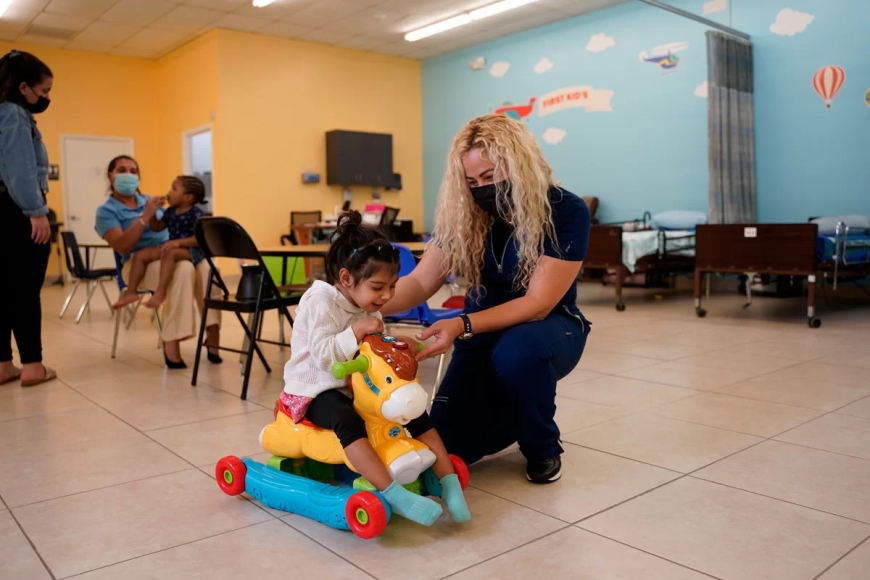Why Every Parent Should Consider PPEC Services for Their Child
Learn why PPEC services for children offer vital medical care, therapy, and support—helping families manage complex needs in a safe, structured setting.

Parents face many decisions when caring for a child with medical or developmental needs. Among these choices, one often overlooked option provides real support for both children and their familiesPrescribed Pediatric Extended Care (PPEC) services. These centers offer daily medical care, therapeutic services, and developmental support in a structured setting. Every parent with a medically fragile child should take a closer look at what PPEC programs bring to the table.
Medical Support in a Safe Environment
PPEC centers operate under the supervision of licensed healthcare professionals. Registered nurses and pediatric specialists monitor each child closely, ensuring immediate medical attention when needed. Unlike a typical daycare, these centers manage feeding tubes, oxygen, medication schedules, physical limitations, and chronic conditions with skill and precision. Parents can rest easier knowing that trained staff care for their child every moment of the day.
When a child lives with seizures, respiratory conditions, or mobility challenges, a traditional school or daycare may fall short. PPEC services for children fill this gap by offering full-time care designed around medical safety. This allows parents to focus on work, responsibilities, or self-care without constant worry about emergencies or special accommodations.
Therapies That Promote Progress
Speech therapy, occupational therapy, and physical therapy often play a central role in a childs development. PPEC centers provide these services under one roof, making coordination simple and consistent. Rather than bouncing from one clinic to another or juggling multiple appointments each week, families can rely on one location for a range of care.
Children build routines and relationships with their therapists, which can lead to better results over time. Therapists at PPEC centers like GenCare Kids often work closely with nurses and caregivers, ensuring that therapy goals align with medical needs. This teamwork leads to better communication between professionals, which benefits the child directly.
Social Interaction That Builds Confidence
Many children with medical needs face isolation. Traditional social settings may not support their abilities or may even pose risks. PPEC centers create an inclusive space where children meet others who face similar challenges. They share stories, play together, and learn valuable social skills in a protected and supportive environment.
This type of peer interaction builds confidence and emotional well-being. A child who spends time around others learns cooperation, communication, and patience. Social growth often moves hand-in-hand with physical and cognitive progress.
Relief for Caregivers
Raising a child with medical needs takes energy, patience, and sacrifice. Burnout among caregivers runs high, especially when support systems fall short. PPEC services give parents reliable help during the day. With trained professionals handling care, parents get time to rest, go to work, or care for other family members.
This kind of daily support can reduce stress levels and improve the overall health of the entire household. Parents who regain balance often return to their caregiving role with more energy and focus. The result is a better environment for both the child and their family.
Insurance and Financial Benefits
Many parents worry about the cost of long-term care. Fortunately, Medicaid typically covers PPEC services in most states. That makes it a practical solution for families who cannot afford private nurses or specialized daycare programs. Compared to in-home nursing or multiple separate therapy visits, PPEC centers offer more services at a lower cost to families.
For eligible families, this means daily care without the burden of major out-of-pocket expenses. It also reduces the need for constant coordination between different healthcare providers, saving both time and energy.
Individualized Plans that Fit the Child
PPEC centers build care plans tailored to each childs specific needs. These plans include medical care, therapy schedules, learning goals, nutrition, and mobility support. Staff regularly update these plans in partnership with doctors, therapists, and parents. This ensures that each child stays on track as they grow and change.
Rather than using a one-size-fits-all model, PPEC teams adjust their approach based on real-time feedback and regular evaluation. This attention to detail allows children to reach milestones and gain independence at their own pace.
Safe Transition to School or Home Settings
Many children in PPEC programs eventually transition to traditional school settings or home care. PPEC centers help families plan for this shift by building skills and confidence in advance. Children leave the program better prepared to interact with peers, follow instructions, and manage their medical needs with more independence.
For some, the transition happens graduallyfirst part-time at PPEC and part-time at school. This step-by-step method gives both the child and the family time to adjust. It also increases the chances of a smooth, successful shift.
Stronger Family Relationships
When families gain support during the day, evenings and weekends often become more peaceful. Parents who spend less time managing complex care during the day can spend more quality time with their children afterward. This creates room for connection, joy, and everyday moments that build strong family bonds.
Siblings also benefit from the stability that PPEC services bring. When parents have the energy to attend a siblings school event, help with homework, or spend time together, the whole family feels more supported.
Stronger Families, Happier Children
Every parent wants to provide the best life possible for their child. When a child needs ongoing medical attention, the choices can feel overwhelming. PPEC services offer a well-rounded solution. They combine healthcare, therapy, social interaction, and family support into one program. By considering options like GenCare Kids, parents give their child access to expert care and a stronger path forward.
For many families, this choice changes daily life for the better. It brings peace of mind, structure, and progress in a way few other programs can match. PPEC centers dont just care for childrenthey support entire families. That alone makes them worth serious consideration.
1. What is the age range for children eligible for PPEC services?
PPEC services typically serve children from birth up to age 20 who require skilled nursing care during the day due to medical conditions.
2. Does insurance cover PPEC services?
Yes. In most states, Medicaid covers PPEC services for eligible children. Some centers also accept private insurance, depending on the provider and state regulations.
3. Can my child still go to school while receiving PPEC care?
Yes. Some children attend PPEC part-time while transitioning into school settings. The center staff works with families to create flexible schedules that fit the childs educational and medical needs.
4. What types of medical conditions qualify for PPEC services?
Children with conditions such as respiratory issues, seizures, feeding tube dependency, genetic disorders, or developmental delays often qualify. A physician must approve the childs need for skilled nursing care.
5. How do I enroll my child in a PPEC program?
The process usually starts with a referral from the childs doctor. After that, the PPEC center will assess your childs needs, verify insurance, and work with you to create a care plan and schedule.


































